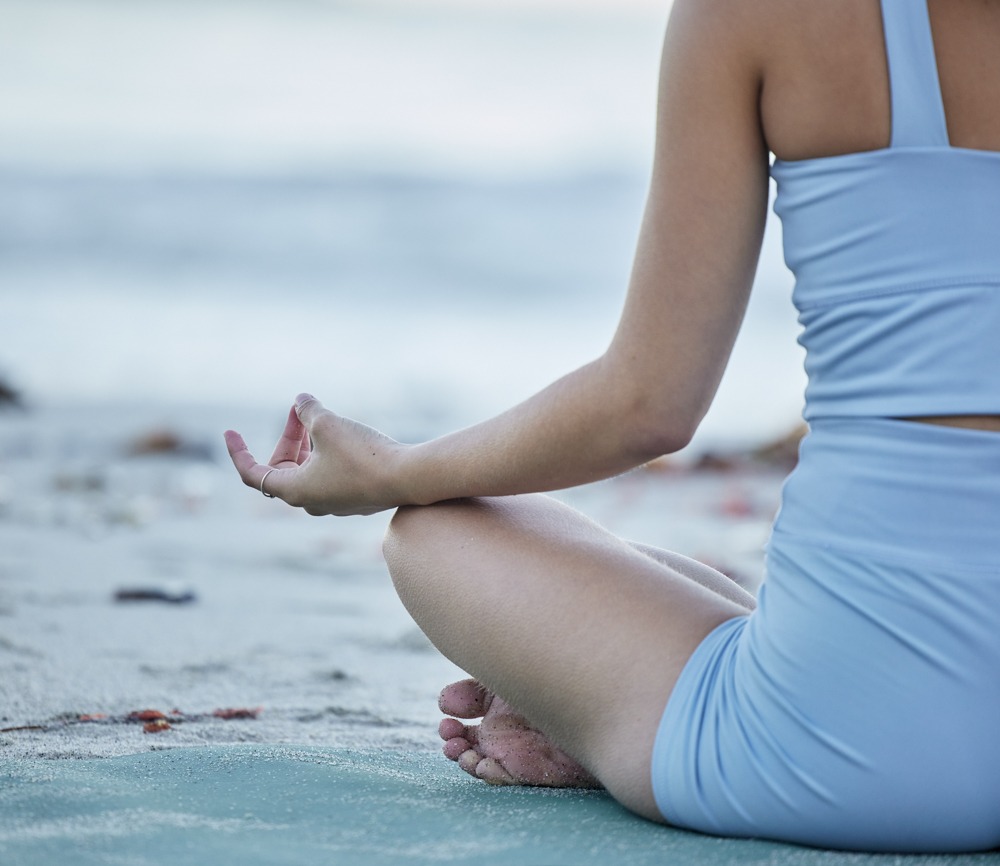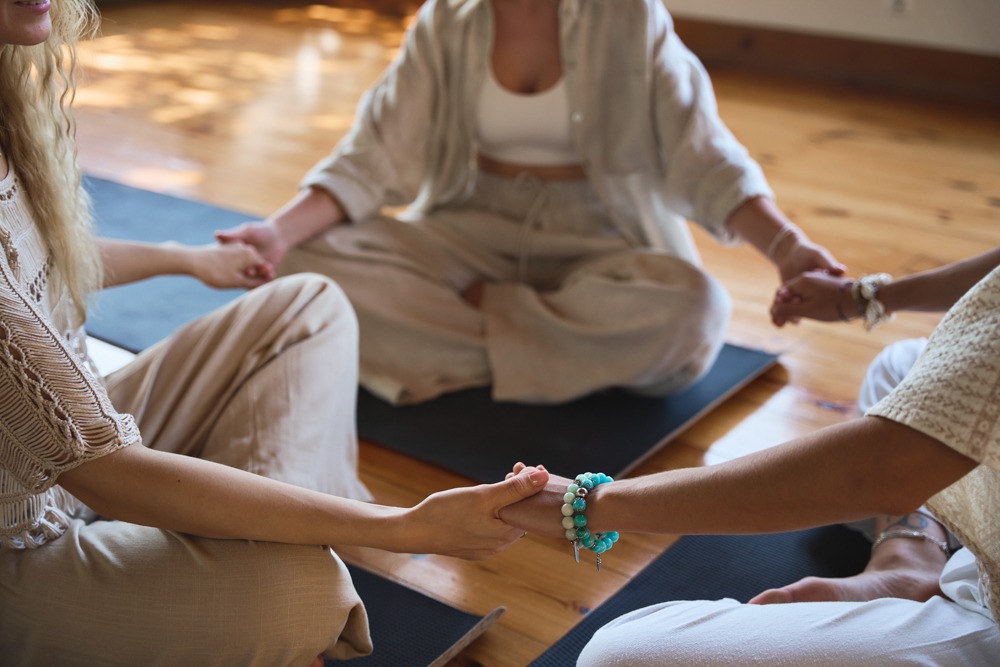Addiction recovery often feels like an uphill battle, but holistic therapy for addiction offers a different path. Instead of focusing only on symptoms, this approach considers the whole person, including mind, body, and spirit. By combining evidence-based treatments with supportive practices like mindfulness, nutrition, and movement, holistic therapy addresses the deeper causes of addiction. It’s a balanced way to encourage lasting healing.
Many people find traditional addiction treatments useful but limited. Holistic therapy for addiction in Washington State bridges that gap by weaving emotional, physical, and spiritual wellness into recovery. With options ranging from acupuncture to talk therapy, each part works together to create a tailored healing process. This approach doesn’t just target sobriety but helps individuals reconnect with themselves and their purpose.
What Is Holistic Therapy For Addiction?
Holistic therapy for addiction focuses on an individual’s entire well-being rather than solely addressing the symptoms of substance misuse. This comprehensive approach considers physical health, emotional states, mental patterns, social connections, and an individual’s sense of purpose. It integrates conventional medical support, such as detoxification and counseling, with complementary practices. These may include art therapy, yoga, mindfulness, acupuncture, massage, nutritional planning, music therapy, or animal-assisted therapy.
The idea is to restore balance in five key areas: physical well-being (sleep, exercise, diet), emotional health (expressing feelings, managing stress), social support (rebuilding connections, reducing isolation), mental clarity (learning to cope, healthy thinking) and spiritual meaning (finding purpose or values).
What Are The Types Of Holistic Therapy For Addiction?
Below are several types of holistic therapy for addiction to consider. They help fill recovery gaps by nurturing emotional, physical, and spiritual needs in conjunction with conventional care.
- Mindfulness Meditation. Clients learn to observe thoughts and cravings gently and without judgment. This approach reduces stress, supports self-control, and eases the emotional challenges of early recovery.
- Art, Music, Dance, or Expressive Arts Therapy. Creative outlets, such as painting, drumming, songwriting, or movement, allow for emotional release and self-reflection. These methods encourage non-verbal expression and can reveal underlying feelings tied to substance use.
- Yoga, Tai Chi, or Qi Gong. Combining gentle movement and breath awareness, these practices help restore the body-mind connection, reduce tension, and cultivate presence, vital components of holistic therapy for addiction.
- Acupuncture and Acupressure. By targeting specific points, these methods aim to alleviate withdrawal symptoms, enhance sleep quality, and mitigate stress during recovery.
- Massage Therapy and Bodywork. Physical relaxation techniques release tension, ease bodily discomfort, and support emotional calm, creating a supportive environment for healing.
- Nutrition and Herbal Counseling. Important things that are often missed in regular addiction programs include personalized advice on food, supplements, and herbs to help rebalance your brain chemistry, stabilize your mood, and cut down on cravings.
- Biofeedback, Neurofeedback, or Electrophysiological Training. Participants use real-time data from sensors to learn how to control stress responses, improve focus, and manage cravings, all helpful tools in relapse prevention.
- Animal-assisted and Equine Therapy. Interacting with dogs, horses, or other therapy animals fosters empathy, trust, and emotional regulation, empowering individuals to reconnect with life in tangible ways.
- Reiki, Energy Work, and Spiritual Therapies. Techniques like Reiki, guided imagery, or meditation support spiritual connection, help clients tap into inner calm, and create meaning beyond substance use.
- Experiential or Outdoor Therapies. Activities like hiking, climbing, or participating in group challenges can significantly help you build resilience, learn to collaborate with others, and improve your problem-solving skills. These hands-on experiences enhance coping skills and self-confidence.
What Are The Advantages Of Holistic Therapy For Addiction?
Here are several benefits of holistic therapy for addiction in Washington, listed clearly. They support recovery by addressing multiple aspects of well-being and helping people build practical tools for lasting change.
Deeper healing from root causes.
This approach tackles factors like trauma, stress, or mental health issues rather than just managing symptoms. It supports uncovering underlying issues to promote more lasting recovery.
Reduced relapse risk through stress relief
Practices such as meditation, yoga, and exercise help calm the nervous system and offer healthier alternatives to substance use during challenging moments.
Better physical health and energy restoration
Nutrition guidance, gentle movement, and sleep-focused care help repair damage from substance use and improve energy, immunity, and overall vitality.
Stronger emotional insight and coping skills
Techniques such as art, music, or expressive therapy help people process their feelings in nonverbal ways and develop healthy ways to manage stress and emotions.
Improved self‑esteem and confidence.
Engaging in new practices and connecting with one’s values can boost self‑belief and personal identity, making recovery more sustainable.
Enhanced social support and community
Group-based yoga, creative sessions, or animal-assisted therapy help build connections, reduce feelings of isolation, and foster healthy relationships.
Spiritual reconnection and sense of meaning
Nature walks, guided imagery, or spiritual practices help individuals rediscover purpose and find motivation that extends beyond the recovery setting.
Sustainable lifestyle and relapse prevention tools
Holistic therapy for addiction encourages daily routines that include stress management, nutrition, movement, and creative expression, tools anyone can use long-term.
Support for coexisting mental health issues
Feeling stressed or anxious often goes hand-in-hand with addiction.
What Symptoms Or Challenges Can Holistic Therapy For Addiction Address?

These are key symptoms and challenges that holistic therapy for addiction can help address. Each item targets a specific area of recovery to support a well-rounded healing process.
Introduced by evaluating physical and emotional needs, the therapy plan adapts to where someone struggles most.
- Trouble managing stress and anxiety. Holistic methods such as meditation, breathwork, yoga, and tai chi support calming the nervous system and building tools to cope in moments of high tension.
- Cravings and withdrawal discomfort. Acupuncture, massage, and movement-based practices help alleviate physical symptoms and reduce the urge to use substances through gentle body engagement.
- Poor sleep and fatigue. Rebuilding healthy sleep routines through guided relaxation, nutritional advice, and gentle exercise can enhance rest and energy levels.
- Emotional overwhelm or numbness. Creativity-driven therapies, such as music, art, journaling, or drama, offer a safe outlet for exploring feelings that may be blocked or overwhelming.
- Physical tension and pain. Body-focused care (massage, acupuncture, somatic modalities) helps release muscle tightness and restore comfort in the body.
- Nutritional imbalances. Personalized meal planning, supplements, hydration support, and education rebuild overall health and mood stability.
- Emotional regulation difficulties. Mind-body practices, guided breathing, and biofeedback help develop real-time techniques to manage emotions without resorting to substances.
- Social isolation or disconnection. Group-based sessions or community activities help reconnect individuals to others and foster healthy support systems.
- Lack of purpose or spiritual disconnection. Nature-based therapies, guided reflection, or values exploration can support the rediscovery of meaning and motivation beyond recovery.
- Difficulty learning daily life skills. Guided coaching in areas such as sleep hygiene, stress management, healthy relationships, planning, and boundary setting builds confidence for a stable routine.
How Is A Holistic Recovery Program Structured?
A complete, holistic addiction therapy program usually follows a clear structure that unfolds in phases. It begins with a thorough intake and ends with ongoing support, weaving complementary practices into standard treatment along the way.
Stage 1: Initial Assessment and Detox
Safely removes substances through medical management, evaluating physical, emotional, and social needs, and planning personalized, holistic methods.
Stage 2: Core Therapeutic Phase
Combines evidence-based therapies (such as Cognitive Behavioral Therapy (CBT) and Dialectical Behavioral Therapy (DBT) with holistic practices (yoga, meditation, nutrition, acupuncture, massage, and art/music therapy), tailored to individual needs for mind-body balance.
Stage 3: Skill Building and Social Reconnection
Includes group therapy, family counseling, peer support (AA/NA, SMART Recovery), relationship-focused practices (CRAFT), and life-skills workshops (job readiness, stress management, healthy communication).
Stage 4: Spiritual and Experiential Integration
Includes purposeful activities like values exploration, contemplative practice, outdoor immersion, nature therapy, or faith-based support. Time is set aside for reflection, connection to meaning, and growth.
Stage 5: Stabilization, Monitoring, and Adjustment
Progress is monitored through therapy adjustments. Tools like biofeedback and neurofeedback may be added. Holistic practices are refined based on the response to treatment.
Stage 6: Aftercare and Ongoing Support
A strong recovery foundation includes sober living, peer and recovery coaching, and comprehensive alumni networks. Relapse prevention and the integration of healthy habits are central to this process, complemented by a range of holistic activities.
What Are Common Holistic Methods Used In Addiction Recovery?

Below is a focused list of common practices seen in holistic therapy for addiction. These methods can be blended to create a personalized recovery plan that connects body, mind, and spirit.
- Mindfulness Meditation. Simple practices, such as guided meditation or breath-focused exercises, help people observe cravings or stress without reacting impulsively. This builds emotional resilience over time.
- Yoga and Movement-Based Practice. Gentle movements, such as yoga, tai chi, or qi gong, encourage reconnection with the body, ease tension, and support focus. These practices help regulate mood and reduce physical stress.
- Art and Music Therapy. Creative expression through drawing, painting, playing music, or songwriting provides nonverbal ways to process feelings, enhance self-awareness, and manage emotions associated with addiction.
- Breathwork and Guided Imagery. Techniques like paced breathing or visualizing calming scenes help soothe the nervous system, making it easier to handle emotional triggers and reduce anxiety.
- Nutrition and Herbal Support. Emphasizing nutrient-rich meals, hydration, and in some cases, herbal supplements helps repair brain chemistry, boost energy, and stabilize mood, which supports recovery.
- Acupuncture and Acupressure. Stimulating specific points in the body may ease withdrawal symptoms, support relaxation, and regulate sleep and stress hormones.
- Massage and Bodywork. Hands-on therapies enhance circulation, reduce muscle tension, and help release stress hormones, promoting physical comfort and emotional calm.
- Recreational and Outdoor Therapy. Engaging in activities like hiking, gardening, nature walks, or team sports offers a connection with nature, strengthens social bonds, and builds new positive routines.
- Biofeedback and Neurofeedback. Receiving real-time data on heart rate, brain waves, or muscle tension teaches self-regulation skills and helpful tools for managing cravings and stress.
- Energy-Based Therapies (Reiki, Spiritual Methods). Methods such as Reiki or guided spiritual reflection can support inner calm and energy balance, helping individuals reconnect with their values and a sense of purpose.
Free By The Sea Offers Holistic Treatments For Addiction Recovery
Free By The Sea’s holistic therapy for addiction combines clinical treatments with natural healing methods such as yoga, meditation, and nutritional support. Our programs focus on repairing the mind and body while helping clients rebuild emotional balance. As part of our Washington inpatient rehab, we offer art therapy, mindfulness practices, and outdoor activities to strengthen recovery and reduce stress. Nutritional guidance and personalized fitness plans help restore physical health, while counseling and spiritual support address deeper emotional needs, providing a comprehensive approach that supports long-term healing and wellness.
Set on a peaceful oceanfront property, our center offers a serene space for reflection and personal growth. Every treatment plan is personalized, combining proven therapies with holistic techniques to support long-term sobriety. Healing should build a healthier and more fulfilling life, not just treat addiction. Contact us today to receive more information on holistic healing and learn how to start your recovery journey.

Dr. Richard Crabbe joined our team in 2019 as our psychiatrist and medical director. He attended the University of Ghana Medical School where he became a Medical Doctor in 1977. From 1978 through 1984, he was a medical officer in the Ghana Navy and provided a variety of services from general medicine to surgeries. He received his Certificate in General Psychology from the American Board of Psychology and Neurology in 2002.
Insurances We Accept
Free by the Sea recognizes the importance of having insurance to receive addiction treatment. Let us work with you to provide you or a loved one with premier addiction treatment services. We accept several private insurance plans. Verify your rehab coverage with us today to ensure you receive the support that you need! Find out if you are covered today!











